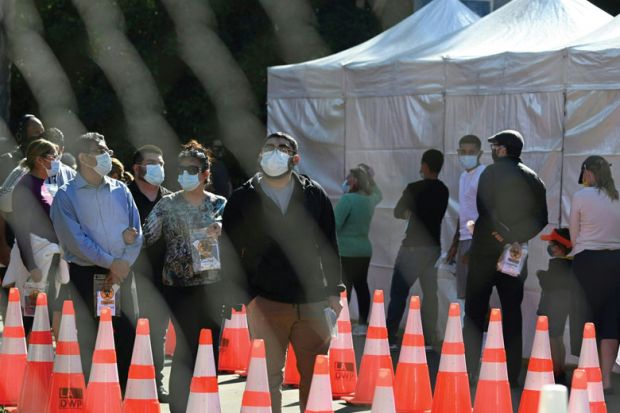With Covid vaccines finally in distribution, a team of scientists and alumni from two elite US universities has contended that their own self-experimentation shows that, disastrously, the life-saving moment took much longer than necessary.
The group, including renowned Harvard University geneticist George Church, has been making and taking their own vaccines since March, believing the underlying mechanisms are well understood and carry very low risk.
Given that reality, said a lead organiser, Preston Estep, many of the world’s 1.6 million Covid deaths may prove to have been an “inexcusable” failure by academics and other experts who knew better.
“Vaccines in general are much safer than the approval process allows for,” said Dr Estep, a co-founder and chief scientist at the Rapid Deployment Vaccine Collaborative, a non-profit organisation also known as RaDVaC.
For much of the world, the regulatory approvals of the Covid vaccine made by BioNTech-Pfizer – with other leading variants coming shortly behind it – are marvels of corporate-academic research partnerships, coming less than a year after the pandemic began spreading widely.
The developments arrived so quickly that many health experts expect large numbers of people will reject the vaccines out of fear that the technology could not have been subject to sufficient testing.
In reality, Dr Estep and Professor Church said, scientists have decades of experience with coronaviruses and vaccines, leaving them virtually certain of approaches to inoculate that offer society far greater odds of benefit than risk.
The basic approach in such vaccines, Dr Estep said, is to find compounds with enough similarities to the virus that stimulate an immune reaction without causing the disease itself. The majority of time spent waiting for Covid vaccines involved the extensive human testing processes.
Like many of the Covid vaccines under development, the RaDVaC version uses synthetically created segments of Sars-CoV-2, Dr Estep said. RaDVaC has posted the instructions on its website, and people with even limited laboratory experience can make hundreds of doses with about $1,500 (£1,100) of equipment and materials purchased online, he said. Injections aren’t required, as the vaccine is administered by spray into the nose, he said.
Dr Estep said he already has taken nine different versions of his vaccine since March. He knows of another 100 people, including Professor Church and others with ties to Harvard and the Massachusetts Institute of Technology, that have participated.
None have been sickened by the vaccine, and only two – both in cases in which the vaccine may have gotten too warm before administering – are known to have been subsequently infected with Covid, he said.
“We looked through the literature, we looked at all the safety data,” Dr Estep said. “We believe vaccines are extremely safe.”
Such limited and informal distribution, however, has left RaDVaC unable to make claims about effectiveness.
To critics, that’s a fatal flaw in the project’s bid to speed a Covid vaccine. The end goal, said Arthur Caplan, a professor of bioethics at New York University, should be a vaccine of proven value that millions of people trust. Even among inventors with Harvard and MIT pedigrees, Professor Caplan said, “saying that you gave it out to 12 of your best friends is probably not the route”.
If RaDVaC leaders truly believe they have a legitimate pathway to a vaccine, he said, “then they really should be turning it into a huge public policy issue, not a private kind of house party”.
Register to continue
Why register?
- Registration is free and only takes a moment
- Once registered, you can read 3 articles a month
- Sign up for our newsletter
Subscribe
Or subscribe for unlimited access to:
- Unlimited access to news, views, insights & reviews
- Digital editions
- Digital access to THE’s university and college rankings analysis
Already registered or a current subscriber? Login








